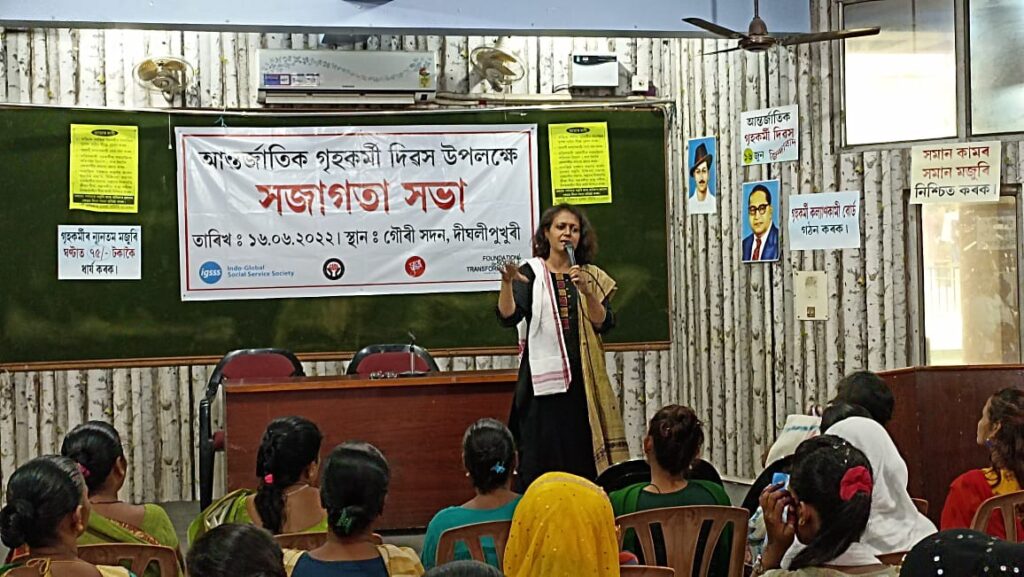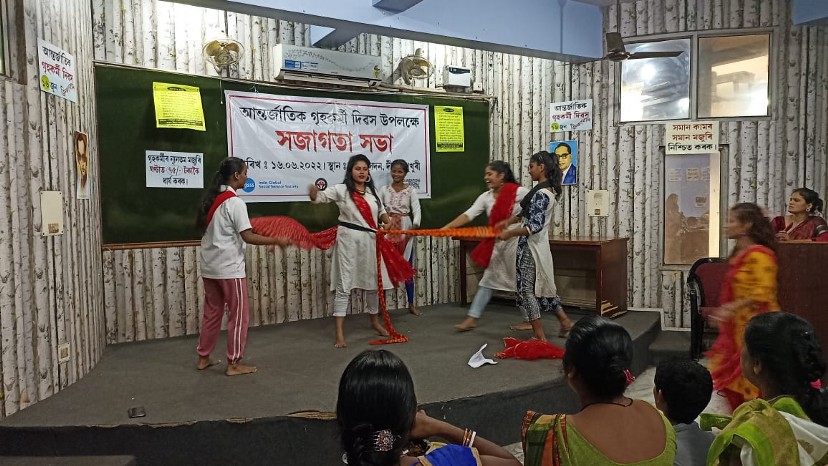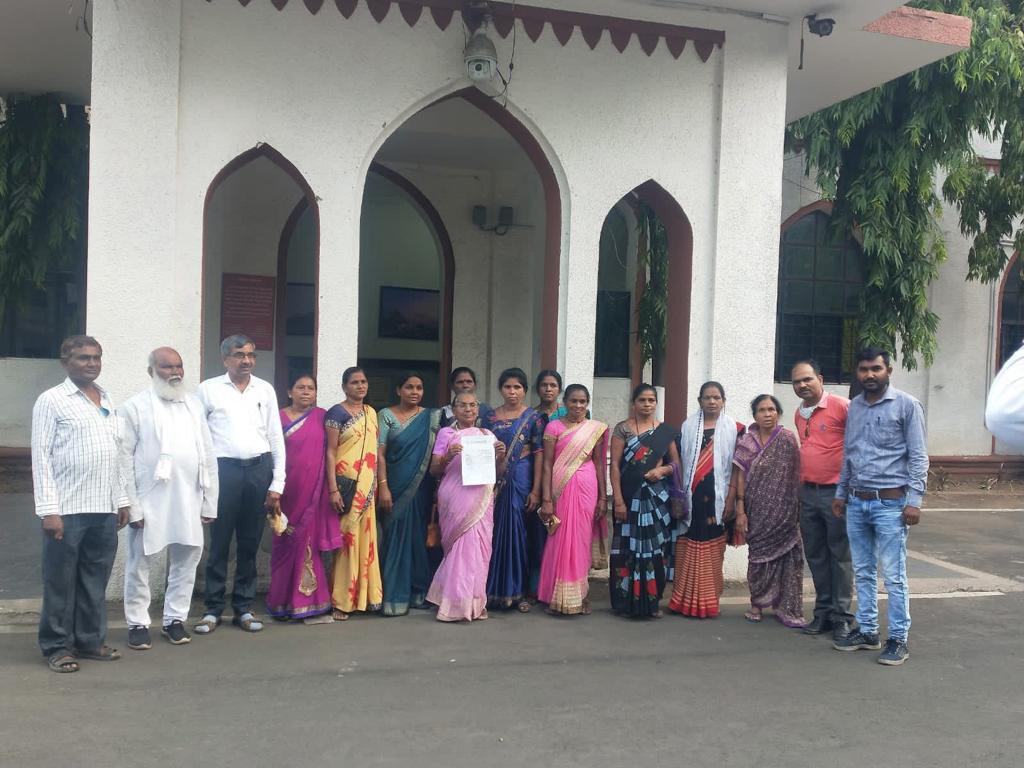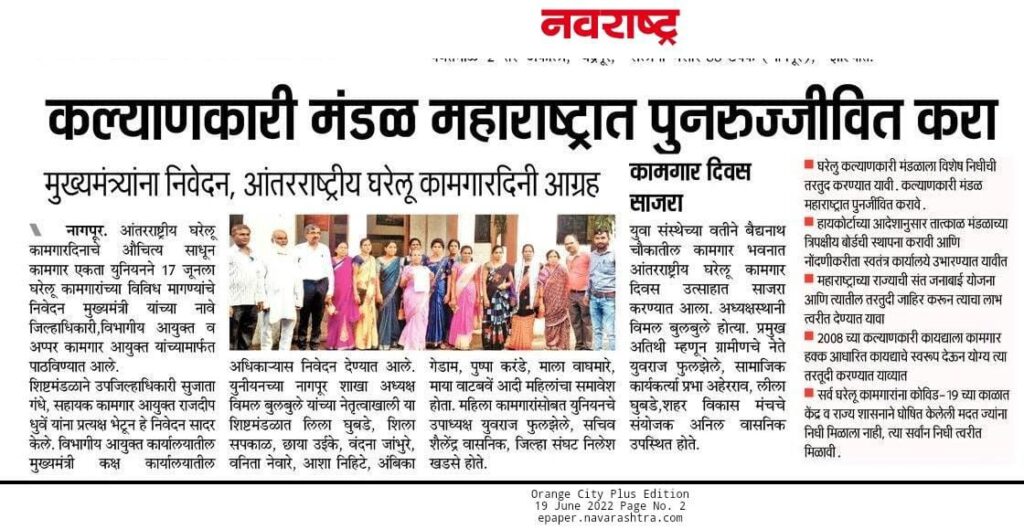Taking steps towards ensuring social security for all
India is home to more than 4 million domestic workers, although some unofficial estimates suggest this number to be much higher at 50 million. On 16 June, we celebrate these workers globally as we observe International Domestic Workers’ Day. This day marks the anniversary of International Labor Organizations (ILO) adoption of Convention 189, which sets working standards for domestic workers. Unfortunately, even a decade after this convention was first adopted, millions of domestic workers in India are still prey to poor working conditions, low wages, little to none social security and no fixed days off.
Domestic workers in India are majorly made up of women who help with the day to day housework, such as cleaning the house, washing clothes and other household work. Despite their presence in the informal workforce in large numbers, they have little to none legal recognition, being often referred to as ‘informal help’ and exploited by their employers. Moreover, these workers are usually from marginalised communities and are likely to be non-literate and low-skilled, which means they do not have much bargaining power nor are they aware of their rights.
YUVA observed ‘International Domestic Workers Day’, with the aim ‘to ensure the social security rights of the domestic workers’. In Guwahati, Assam, YUVA and the domestic workers’ collective Grihokarmi Adhikar Surakshya Samiti (GASS) with Indo Global Social Service Society (IGSSS) and Foundation for Social Transformation (FST), organised various activities to highlight the voices of female domestic workers about the problems they are facing. Nearly 100 women attended this programme and they were all addressed by Rashmi Rekha Bohra from the North East Network about health awareness and sexual harassment in the workplace. This helped them get well-versed with the laws and offered ideas about how they should react and whom they should approach in such cases. Following this, a freelance artist did a conversation drama which addressed the issue of wages of construction workers and how they cope with it.

In addition to this, the ‘Kite Runners’ youth collective also presented a play titled ‘Worker Mahila’ which focused on the common problems faced by domestic workers when they go out to work. This helped people understand the problems of domestic workers in a more engaging manner, creatively showcased by the youth.

The programme ended with GASS and YUVA’s demands for social security of domestic workers. Together they are advocating for a state legislation for domestic workers to ensure regulation of services provided by government.
In Navi Mumbai and Nagpur, there was a registration drive for the workers who were not registered with the Maharashtra Kamgar Kalyan Mandal (Domestic Workers Welfare Board). This helps them get recognition and reap any social security benefits that come their way in future, such as the Sant Janabai social security and welfare scheme. The team also followed up on the Maharashtra government announcement of INR 1,500 relief announced for domestic workers in the wake of COVID-19 — many workers are still to receive this amount. In addition to this, domestic workers sent postcards to the Chief Minister, with important demands, which include regulating the domestic workers’ market, having minimum wage laws for domestic workers, calling for better working conditions and formulation of welfare and social security schemes for workers.


In Nagpur, about 50 members of the Kamgar Ekta collective and YUVA observed this day by sharing its relevance. Domestic workers explained the problems they face at their workplace and discussed how social security could benefit them. Workers submitted letters to the State Labour Offices, demanding their basic rights such as social security laws. YUVA and the Labour Commissioner, Nagpur, agreed to the notion of having schemes, specifically for domestic workers, to provide them education, financial and health assistance and they promised to work together in forming a draft and sending it to the state government and the CM.
While International Domestic Workers Day offers the opportunity to raise awareness about the rights of domestic workers, and work to achieve them, it is vital to act on all these issues as we go ahead. Regulations relating to minimum wage and work conditions are critical to protect people from being exploited, and it’s crucial to ensure dignity and justice at work.
Vansh Jogani, student of Ashoka University, intern at YUVA
Reviewed by Kisa Kazmi, YUVA


